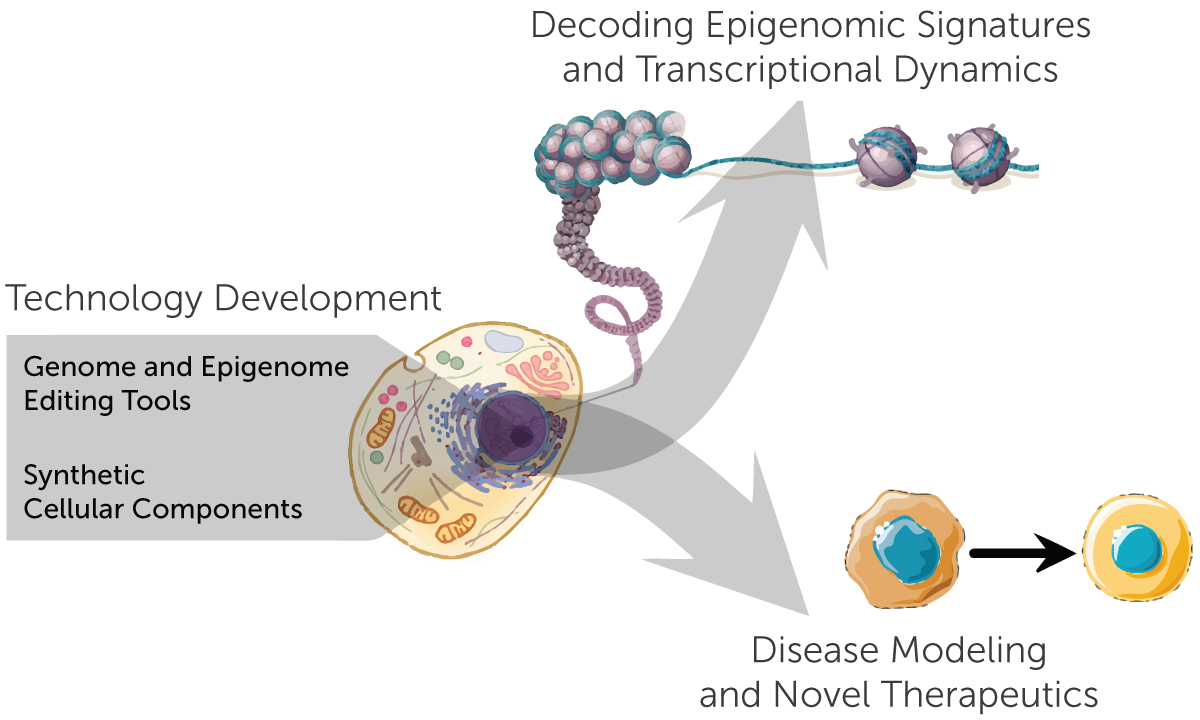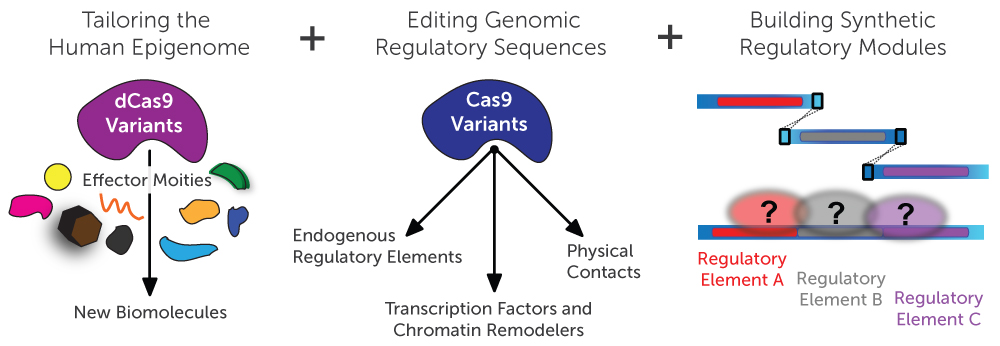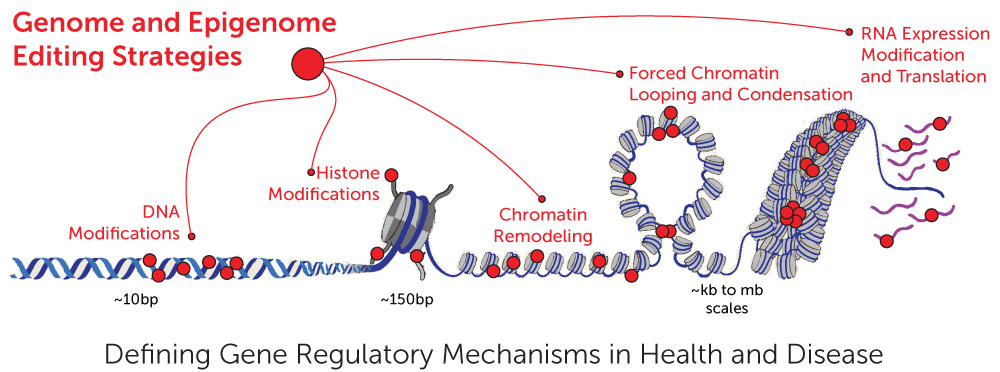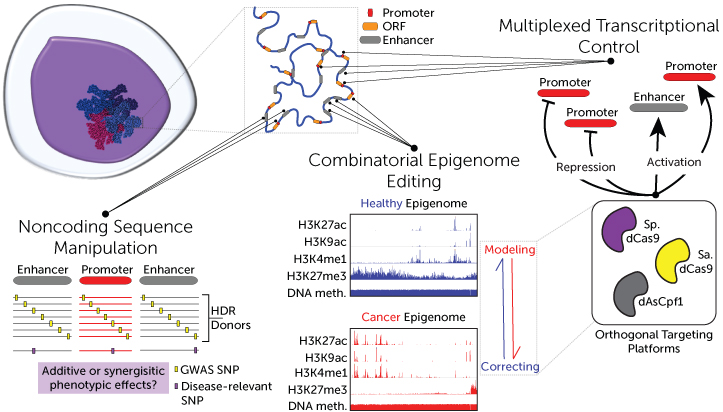Overview
The goal of our work in the Hilton lab is to investigate how human cells function so that we and others can build sophisticated genetic medicines and cell-based therapeutics that prevent, treat, or cure different classes of human diseases. To accomplish this overarching goal, we develop and apply innovative biotechnologies to elucidate and synthetically reshape; how human genes are expressed, how human cells run biological programs, and how disease phenotypes manifest and respond to defined perturbations. We are dedicated to making our discoveries and technologies as robust, accessible, and useful as possible.
Our team leverages cutting-edge genome and epigenome engineering technologies, functional genomics, and other emerging synthetic biology tools to achieve our research objectives. Our efforts span three highly inter-related areas.
- Developing new technologies to precisely manipulate epigenetic marks, transcriptional networks, and human cell functions
- Decoding fundamental cellular mechanisms to better understand how gene regulation safeguards the balance between human health and disease, and to better engineer gene regulatory mechanisms for human benefit
- Engineering genetic sequences and epigenomic activity to better model human diseases and uncover new therapeutic opportunities
We are immensely grateful to key funding agencies, including the Cancer Prevention and Research Institute of Texas (CPRIT; for funding our work to mechanistically dissect human cancers), the Dunn Foundation (funding work to understand how the epigenome influences immune cell functions), DARPA and ARPA-H (supporting multi-lab efforts to use synthetic biology to engineer cells as implantable living pharmacies), the NIH NIBIB (to program robust and tunable therapeutic functions in human immune cells using modular synthetic circuits), the NIH NIGMS (to understand and engineer biomedically actionable gene control), and the NIH NHGRI (to precisely engineer and understand how histone acetylation animates the human genome) who have all helped to foster and enable the lab’s mission.

Technology Development
An exciting new era in biomedical research is emerging due, in large part, to pioneering progress in nucleic acid synthesis and molecular cloning, high-throughput functional genomics, and genome and epigenome editing. However, new technologies bridging these parallel advances are necessary to realize the full potential and impacts primed by this nascent scientific revolution. In the Hilton lab we work to develop, standardize, and implement practical and useful new technologies at this interface. Our goal is to produce reagents and results which are broadly applicable across scientific disciplines to help catalyze this new era. Our specific focus is on the creation of tools and methods which enable precision sculpting of the human transcriptome, epigenome, and the structure of human chromatin.

Decoding Chromatin and Transcriptional Dynamics
Coordinated gene expression programs are necessary for the functions of all single cells, tissues, and organisms; and hence all life as we know it. Therefore, understanding how these regulatory programs are controlled, and how they can be manipulated, fundamentally underlies all advances in basic biology, biotechnology, and biomedicine. Despite this overarching importance, a comprehensive definition of how genes are expressed, and how this expression can be synthetically controlled at appropriate times, across different magnitudes, and in response to diverse stimuli; remains both lacking and critically needed. In the Hilton lab we are focused on illuminating fundamental principles of gene regulation in human cells, across all epigenomic and transcriptional scales, and repurposing these principles to precisely control cellular behaviors and treat human diseases.

Disease Modeling and Novel Therapeutics
Most human diseases are linked to mutations in noncoding regions of the human genome. However, deciphering which of these mutations are disease-relevant against the vast and complex background of natural human genomic variation is an enormous scientific bottleneck. In the Hilton lab we use conventional genome editing approaches to evaluate how differences in genetic sequence at single and multiple loci collectively contribute to disease phenotypes. In parallel we apply multiplexed epigenome editing tools to finely tune epigenetic signatures and transcription at several loci simultaneously in single cells to model how combinations of epigenetic signatures influence disease progression and responses to therapeutics, particularly among immunological cell types.

